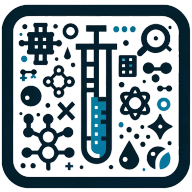7 Complexities of Workplace Drug Testing Explained
Navigating the intricate landscape of workplace drug testing requires more than just a basic understanding. This article offers an expert-backed deep dive into the complex issues of accuracy, legality, and ethics surrounding these tests. Gain invaluable insights to expertly manage drug testing protocols in your organization.
- Understand Nuanced Workplace Drug Testing
- Recognize False Positives in Drug Tests
- Navigate Complex Legal Regulations
- Balance Ethics and Privacy in Testing
- Determine Impairment, Not Just Presence
- Ensure Reliability of Testing Methods
- Consider Impact on Recruitment and Retention
Understand Nuanced Workplace Drug Testing
One thing I wish more people understood about workplace drug testing is how nuanced the process truly is. It's not just about implementing a policy or conducting tests, it's about creating a balanced approach that prioritizes safety, fairness, and education. For instance, we once worked with a company that struggled with high injury rates and suspected substance use in their workplace. Initially, their approach was to rely on random testing alone, but this was causing tension among employees and failing to address the root of the issue. Drawing from my years of experience and qualifications, I suggested integrating a more comprehensive plan that included education on workplace safety, clear policies on drug use, and post-incident testing to identify patterns. We also provided guidance on compassionate handling of positive results to help employees seek support when needed rather than just facing punitive measures. Over time, this approach improved safety records, reduced injuries, and built trust between the employees and management.
What people often miss is that workplace drug testing is not one size fits all. As a certified expert with decades of experience running a service-oriented business, I've learned that understanding the needs of both the employer and the workforce is key to achieving long-term success. Whether it's helping to implement fair policies or addressing safety concerns, an empathetic and informed approach can create a safer, more productive work environment.

Recognize False Positives in Drug Tests
One key point I wish more people recognized is that workplace drug tests often can't distinguish between certain legal substances or routine medications and illicit drugs. Everyday items like poppy seeds, for example, can metabolize into trace amounts of morphine in the body, sometimes triggering a positive opiate result. Similarly, many over-the-counter cold medicines containing pseudoephedrine can show up as amphetamines on a basic screening. When you add chronic health conditions and the medications or supplements that come with them... the risk of these 'false positives' grows even higher. It's important for both employees and employers to understand that initial test results can be misleading and should be followed up by confirmatory analyses to ensure accuracy and fairness.
Navigate Complex Legal Regulations
Legal regulations around workplace drug testing are complex and vary significantly by location. In one country, what is considered a standard procedure might be viewed as an invasion of privacy in another. These differences in legal frameworks can make it challenging for multinational companies to implement consistent drug testing policies.
This can lead to legal issues if not properly managed across different jurisdictions. Understanding and complying with these diverse regulations is crucial for any company. Consult with legal experts to ensure your company stays compliant.
Balance Ethics and Privacy in Testing
The ethical considerations of workplace drug testing primarily revolve around employee privacy. Employees may feel that drug testing intrudes on their personal lives, especially if tests are conducted without reasonable suspicion. Balancing the need for a safe workplace with respect for individual privacy can be quite challenging.
Companies must navigate these concerns delicately to maintain trust and morale among their workforce. Clear communication and transparent policies can help address these ethical concerns. Prioritize creating a fair testing policy that respects privacy.
Determine Impairment, Not Just Presence
One of the biggest challenges in workplace drug testing is determining impairment versus presence. Many tests can detect the presence of drugs long after their effects have worn off. This means an employee might test positive even if they are not impaired at work.
Consequently, employers struggle to ensure that their drug testing policies are fair and accurately identify impairment. Adopting testing methods that better correlate with impairment can help address this issue. Advocate for more accurate testing protocols to ensure fairness.
Ensure Reliability of Testing Methods
The reliability of different drug testing methods can vary greatly, which adds another layer of complexity to workplace drug testing. Some methods may produce false positives, leading to potential wrongful disciplinary actions against employees. On the other hand, less sensitive tests might miss active drug use, compromising workplace safety.
Companies need to carefully choose the most reliable and appropriate methods for their specific needs. Regularly review and update testing methods to maintain reliability and fairness.
Consider Impact on Recruitment and Retention
Workplace drug testing can significantly impact recruitment and retention, posing challenges for employers. Strict drug testing policies might deter highly qualified candidates from applying, fearing false positives or privacy invasions. Current employees may also feel mistrusted, which can lead to lower job satisfaction and higher turnover rates.
Balancing the need for a drug-free workplace with a supportive and trusting environment is essential. Think carefully about how these policies affect your workforce and recruitment strategy. Make informed decisions to foster a positive workplace culture.


